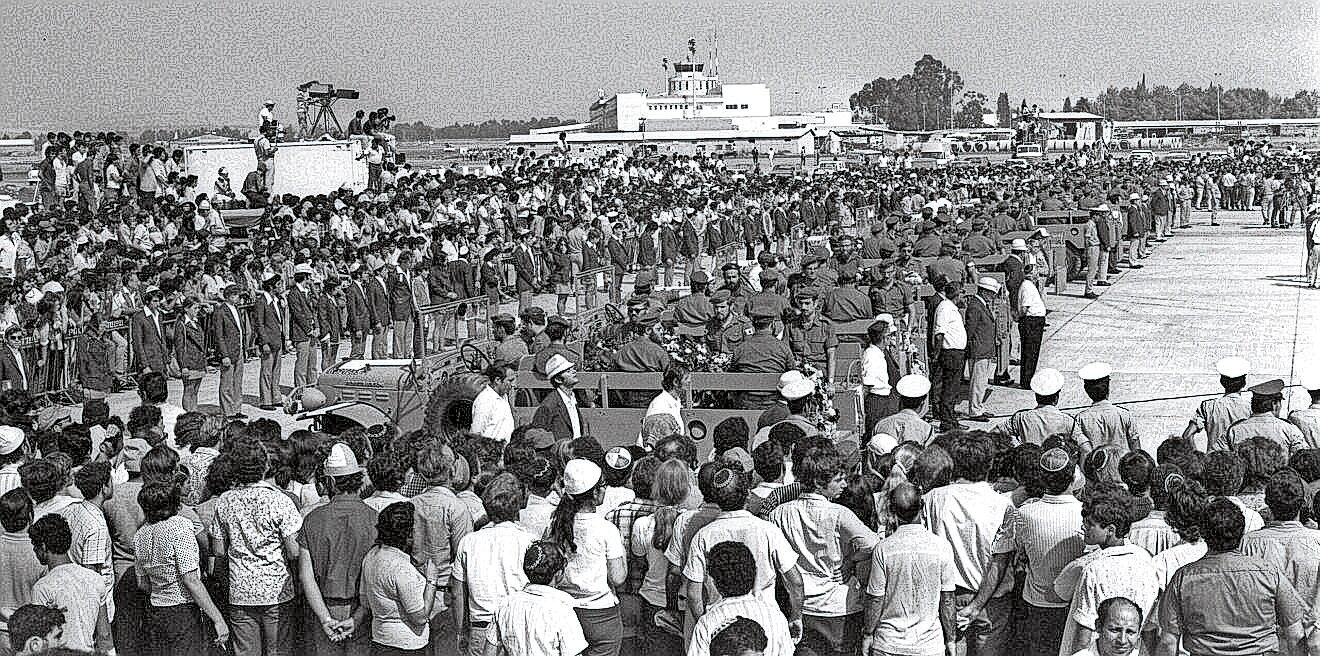Israel again shows a long arm of retribution
The killing of senior Hamas leader Ismail Han-iyeh on July 31 is just another in a long line of anti-terror activities that take place outside the borders of Israel. For a country that struggles to manage mail delivery within its borders, delivering a concealed bomb to a hotel 1,000 miles away in Tehran didn’t seem to be a problem.
Haniyeh’s and other recent assassinations are not one-off events, as Israel’s long arm of retribution for harm against its citizens has been seen before.
Following the massacre of 11 members of the Israeli athletic team at the 1972 Summer Olympics in Munich, then-Israeli Prime Minister Golda Meir authorized the Mossad to undertake “Operation Wrath of G-d,” which targeted individuals associated with the Palestinian Black September movement and operatives of the Palestine Liberation Organization for assassination. While the precise number of targets remains unknown, it is reported to have included 20 to 35 individuals. The operation spanned two decades, emphasizing the global scale and extended duration of the Jewish state’s response to the violent tragedy in Germany.
More recently, as Palestinian terrorists murdered and maimed Israelis in the 1990s following the signing of the Oslo Accords, Israel again acted.
For instance, in October 1995, Fathi Shaqaqi, leader of Palestine Islamic Jihad, stepped out of a hotel on the Mediterranean island of Malta. Two men on a motorcycle stopped opposite him and shot him at point-blank range. While no one took credit for the attack, it was attributed to the Mossad as payback for PIJ carrying out an April 9, 1995 terror attack near Kfar Darom that took the lives of eight people, including my daughter Alisa.
January 1996 saw the assassination of Hamas operative Yahya Ayyash, known as “The Engineer,” who was responsible for rigging bomb vests and designing other deadly terror tools. His cell phone was returned to him after a “repair,” and when he answered a call, an explosion did what it was intended to — remove a potent member of the Hamas terror team.
• • •
Yet it’s disheartening to realize how little the US government has done in similar cases and how muddled the American reply has been to attacks against American citizens in Israel and elsewhere.
You may recall then-President Bill Clinton’s 1996 promise to the family of Nachshon Wachsman — a US citizen kidnapped and murdered by Hamas in 1994 — that he would bring Mohammed Deif, the mastermind of the kidnapping, to justice. Safe under the protection of the PLO and then Hamas, polite requests from Washington to PLO chief Yasser Arafat for Deif to be handed over to it were met with silence. While it took almost 30 years, Deif did meet his end last month, courtesy of Israel.
Going further back, on Aug. 11, 1976, terrorists from the Popular Front for the Liberation of Palestine attacked the El Al Terminal in the Istanbul airport. Four people were killed and dozens injured. Two of the wounded were American women. One of those killed was Harold W. Rosenthal, 29, of Philadelphia, who had been a staff member for several Democratic members of Congress.
The PFLP is the second-largest faction of the PLO. The PLO is headed by Mahmoud Abbas, chairman of the Palestinian Authority, which receives $500 million a year from the United States. Yet no US administration has ever demanded that Abbas expel the PFLP from the PLO.
• • •
While the US reaction to the terror attacks on Sept. 11, 2001, eventually brought about the killing of mastermind Osama bin Laden in Pakistan and the arrests of some of Al-Qaeda’s most notorious villains who are now imprisoned at Guantánamo Bay, the absence of any American response to the murder and kidnappings of Americans by Hamas on Oct. 7 is discouraging.
It’s not that the United States can’t act; it certainly does when it wants to. Al-Qaeda was the target of “Operation Enduring Freedom” initiated in 2001 to dismantle the terror group and remove the Taliban from power in Afghanistan. This operation involved extensive military action, including airstrikes and ground operations.
US laws allow for the prosecution in the United States of crimes against Americans that are committed overseas. Other laws address the deaths of Americans overseas as a result of state-sponsored terrorism as well as hostage-taking.
The US Code has a section dealing with hostages. It applies to “whoever … seizes or detains and threatens to kill, to injure or to continue to detain another … in order to compel … a governmental organization to do or abstain from doing any act as an explicit or implicit condition for the release of the person detained, or attempts or conspires to do so, shall be punished by imprisonment for any term of years or for life and, if the death of any person results, shall be punished by death or life imprisonment.”
This law clearly applies today, as at least nine American citizens are being held captive in the Gaza Strip. The “whoever” cited in the statute are those members of Hamas who not only participated in the attacks but “conspired” — namely, the Hamas leadership. With Haniyeh out of the way, Hamas senior leader Yahya Sinwar is a ripe candidate for indictment and US action to bring him to justice.
America has the tools to join in the fight against Hamas. So, why hasn’t it? The hostages and the memories of those murdered on Oct. 7 deserve at least that much.






